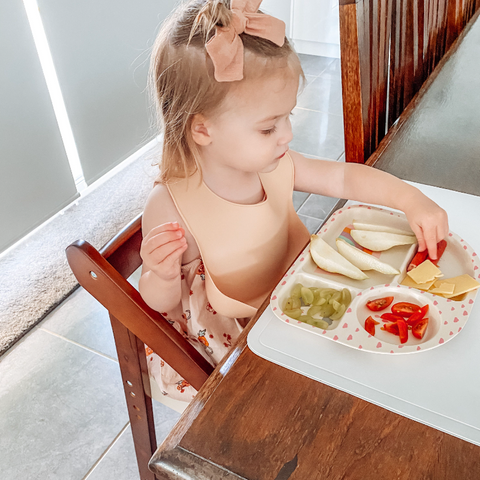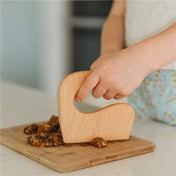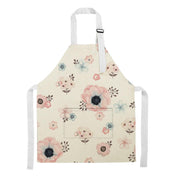Exposing toddlers to a variety of healthy foods is an important aspect of their overall development and well-being. By introducing them to nutritious options early on, parents can lay the foundation for a lifetime of healthy eating habits. Some of the key benefits of exposing toddlers to healthy foods include:
-
Promotes healthy growth and development: A balanced and nutritious diet is essential for the growth and development of toddlers. Eating a variety of healthy foods, such as fruits, vegetables, whole grains, and lean protein, can provide the nutrients needed for optimal health and development.
-
Supports a healthy weight: By offering healthy food options, parents can help their toddlers establish healthy habits and maintain a healthy weight. Eating a variety of nutrient-dense foods can also help prevent overeating and reduce the risk of obesity.
-
Increases food acceptance: The more familiar a toddler is with different foods, the more likely they are to try and accept them. Regular exposure to healthy foods can increase their willingness to try new things and expand their palate.
-
Teaches healthy habits: By including toddlers in meal preparation and encouraging them to try new foods, parents can teach their children the importance of healthy eating habits and help lay the foundation for a lifetime of healthy food choices.
-
Supports cognitive development: Healthy foods, such as fruits and vegetables, contain essential nutrients that support cognitive development, including vitamin C and antioxidants, which are important for brain function.
Exposing toddlers to healthy foods is an important aspect of their development and helps lay the foundation for a lifetime of healthy habits. By providing them with a variety of nutritious options, parents can help their children develop a positive relationship with food and establish healthy eating habits that will last a lifetime.
One way to make Meal Times fun is to use Fun Games to engage with your toddler. Here's a list of our top 7 Food Games:

-
Food Tasting Game: Offer a variety of healthy foods for your toddler to taste and identify. Ask them to describe the flavors, textures, and colors of each food.
-
Food Matching Game: Cut out different foods and have your toddler match them to their corresponding pictures.
-
Food Bingo: Draw a grid of different foods on a piece of paper and play a classic game of Bingo.
-
Vegetable Relay Race: Cut up various veggies into small pieces and have your toddler race to put them in order from smallest to largest or vice versa.
-
Fruit and Vegetable Scavenger Hunt: Give your toddler a basket and have them search the house or garden for different fruits and vegetables.
-
Food Shape Sorting: Cut up different foods into various shapes and have your toddler sort them into different categories, such as circles, squares, or triangles.
-
Food Group Sort: Group different foods into different categories, such as fruits, vegetables, dairy, protein, and grains, and have your toddler sort them into the correct categories.
These games can help introduce your toddler to new foods and foster a positive relationship with healthy eating.
Wondering how to make vegetables fun for toddlers ? We've got our top ideas below:

-
Offer a variety of colourful vegetables: The more visually appealing the vegetables are, the more likely your toddler will be interested in trying them.
-
Let them help with preparation: Allow your toddler to wash, chop, or stir-fry the vegetables. This can make them feel involved and invested in the meal.
-
Make it interactive: Serve raw veggies with dips like ranch or hummus, or let your toddler use toothpicks to pick up the veggies and eat them like skewers.
-
Hide the veggies in dishes they love: Add grated or pureed veggies to dishes like spaghetti sauce, mac and cheese, or even smoothies.
-
Serve them in fun shapes: Use cookie cutters to cut the veggies into fun shapes or make faces on their plates.
-
Play a guessing game: Blindfold your toddler and have them taste different veggies to see if they can guess what they are.
-
Encourage them to try a bite: Offer praise and positive reinforcement for trying new foods, even if they don't like it.




